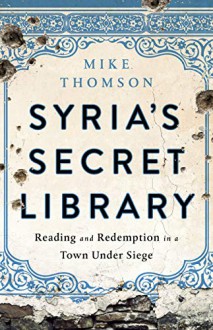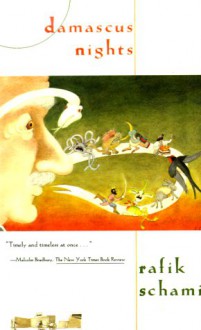
Disclaimer: ARC via Netgalley
Ursula K Le Guin tells the story of a place whose happiness depends on one child being miserable in “The One Who Walks Away from Omelas” and the reactions to those when they discover it. In part, our ability to exist in the world is on our ability to disregard or ignore horrors, but sometimes we refuse that happiness, refuse to bow to the horrors. In many ways, Thomson’s book makes me think of that story as well as how much we take for granted. If you teach, then you know that tare a great many students who do not read for pleasure (shot, just ask how many people have read LOTR or GoT instead of just watching), yet this book is partly about the human spirit and partly about why books are important.
Thomson chronicles the story of a group of people who start a library in Daraya, a town close to Damascus. According to Thomson, the town has always had a proud history of peaceful protest, and therefore, caught up in the Civil War. Some of the town’s population flees, others stay. Some of those who stay realize the fighting is simply more than picking up a gun, but also the transmission of knowledge – their fight style includes the founding of schools and a library. In part, the library comes from a desire to save books that were bombed out homes. The lengths that the men, it seems it was largely men who gathered the books, went to collect items – books furniture- and the sheer fairness in which they kept records about where the items came from.
In part, Thomson also chronicle show these men, and later women, not only use the library but also try to continue as much as a normal life as they possibly can. The library, it seems, becomes both a cause and a symbol – not only of what was, of what we should be, of how we learn, but also of what the revolution is fighting for as well as the difference in sides.
We know from history that the quickest way to destroy a people is to destroy a culture. Destroy the books, the art, and so on. Culture can mean a people but it also can be a city. The library in Daraya was part of this - a desire to preserve the need for knowledge, the thirst for reading that many people never develop at least where access to a library is easy.
While I would have loved a bit more description of what books made up the library, Thomson does mention quite a few works, in particular the favorite works of the people who frequented the library. The list includes some that are unfamiliar to Western readers. In many ways, this insures that Thomson’s reporting serves another important function of a library – as a bridge between peoples.

 Log in with Facebook
Log in with Facebook 









